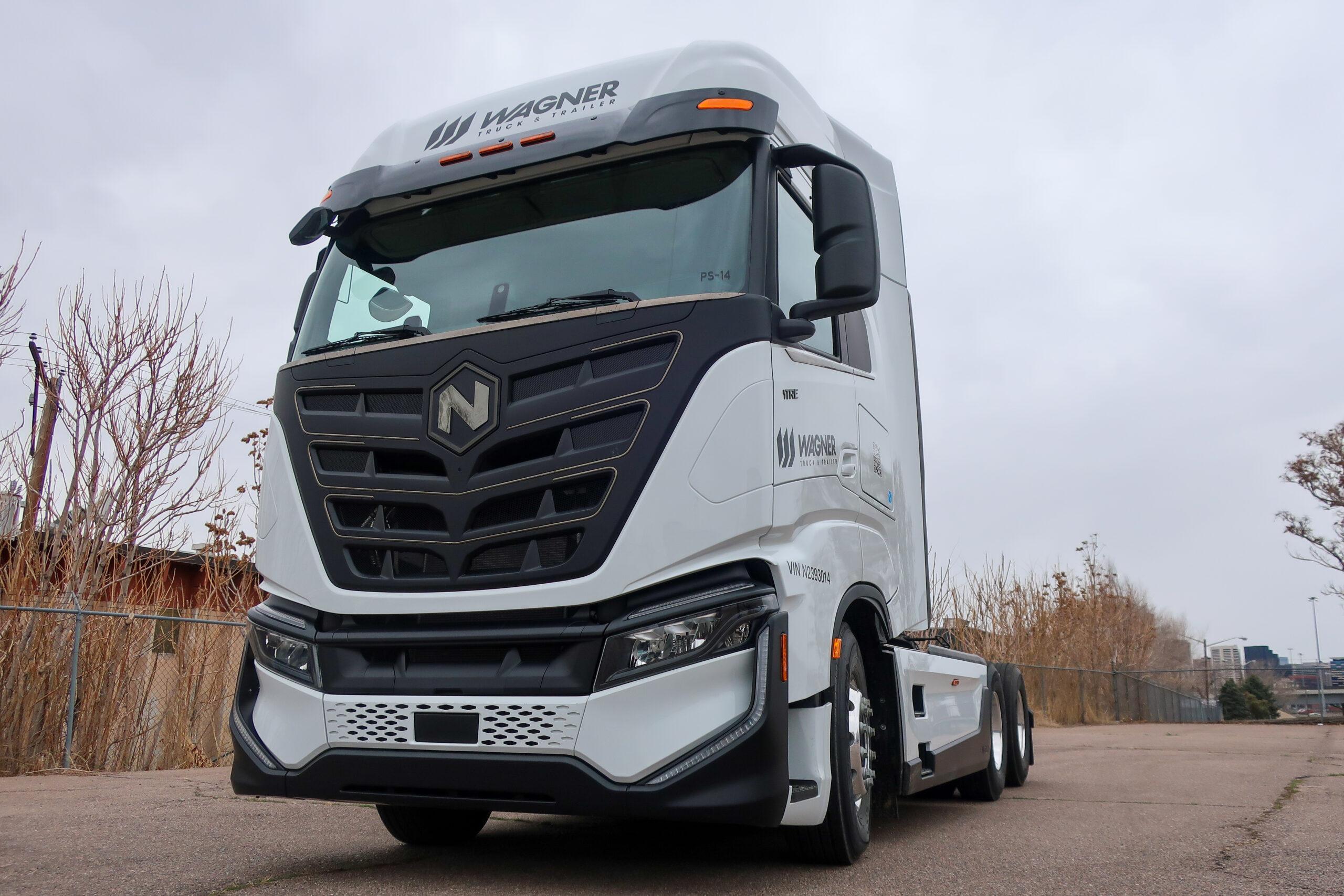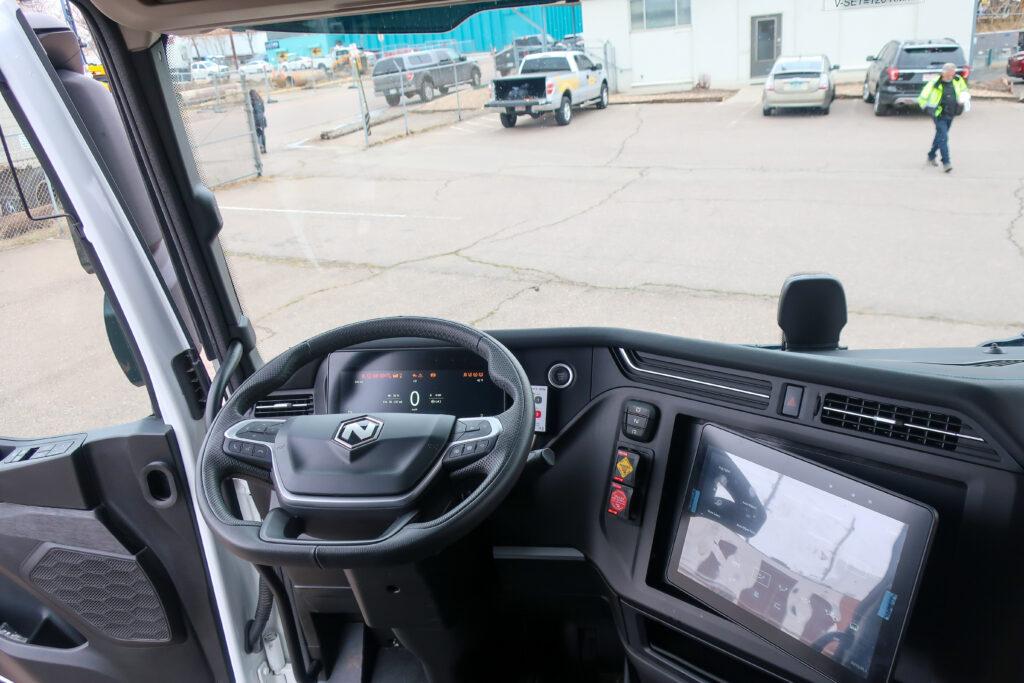
So far, Colorado’s push for cleaner trucks has consisted of things like studies, strategies and policies.
But on Thursday, another, more visible part of that push rolled into view: an actual fully electric, zero-emission semi-truck. The Nikola Tre BEV is now available for purchase in Colorado.
The Tre BEV has a range of 350 miles and an estimated charge time of 200 minutes. Its tight turning radius makes it a good candidate for a delivery vehicle in cities, said Dan Cassaday, a sales representative with Wagner Equipment Corp., which is selling the Tre BEV in Colorado.
“This truck will do the job day in and day out,” he said.
Nikola’s upcoming hydrogen-powered trucks, like the Tre FCEV, will have longer ranges. Other manufacturers are getting into the battery electric and hydrogen game, too.
“We look at this as one technology among several that are clean technologies, inclusive of hydrogen as well as renewable natural gas,” said Greg Fulton, president of the Colorado Motor Carrier Association. “These are all technologies that offer a great deal of opportunity, but they fit maybe in different markets and specific needs. And so we kind of need them all.”

Elizabeth Fretheim, global head of sustainability and social responsibility for Nikola, said the Tre BEV costs more than a diesel rig but declined to give a specific price.
“Diesel has a hundred years on us,” she said. “We need a little bit of time to catch up. So we fully expect as we scale into the market that upfront cost will come down and therefore be not as much of an issue for our customers.”
Fretheim said the truck’s final sale price depends on factors like the number of vehicles a customer orders. Cassaday, the Wagner sales representative, said the electric version would be “probably at least twice” the cost of a new diesel rig, which can run $150,000 to $170,000.
“But the cost of ownership is going to be less, especially when it comes to fuel costs,” he said.
Cassaday said some prospective customers have been skeptical about switching to electric. But he said they have advantages over diesel that go beyond fuel savings. Torque-y electric engines can muscle up steep hills with more consistent power than diesel, and regenerative brakes make descents less complicated than the jake brakes truckers have used for decades.
“Change is coming,” he said. “We just got to figure out that conversion period, whether it's 10 years, 20 years. But change is coming.”









